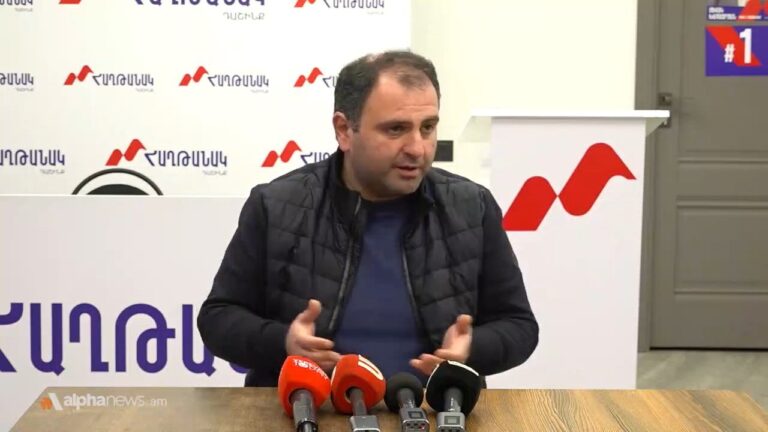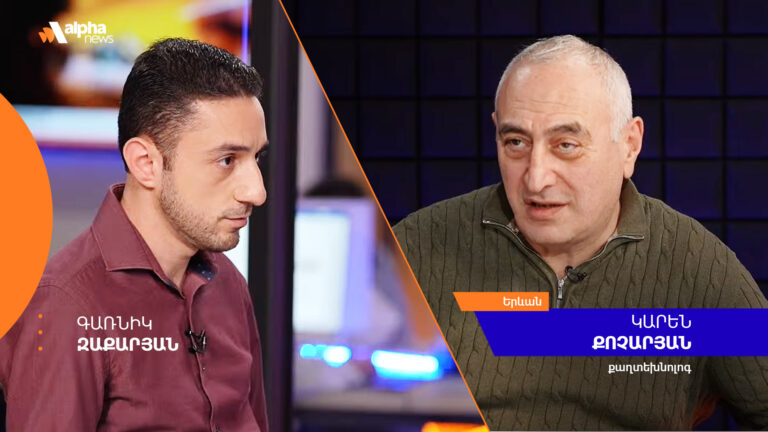“Khoncha Time”: Artsakh family reopens its food outlet in Yerevan. Arushanyans’ story of displacement
November 08 2023, 14:33
The once completely clean city of Stepanakert literally drowned in garbage after September 19, Anahit Arushanyan, who was forcibly displaced from Artsakh, tells Alpha News.
The capital of Artsakh, which Anahit was used to seeing clean, and the people, who were always neatly dressed, were not the same anymore after Azerbaijan launched an attack on September 19. Many Artsakh residents who were evacuated from the areas under the sounds of Azerbaijan’s rocket attacks took refuge in Stepanakert. Anahit says that they stayed in the basements for 24 hours, and only after the ceasefire did they leave shelters to go back to their homes. All these few days, people lived in uncertainty.
“The blasts were heard very close; that day they did not stop even for a minute. We were in the basement, and it seemed to us all that this would soon end. We didn’t even imagine that the enemy could enter the city. But after two or three hours, we already heard gun bursts from the city. We lost hope that we would be saved. None of us even imagined that Armenians would leave Artsakh in one or two days,” Anahit says.
As Anahit recalls, in those days, chaos reigned in Stepanakert. People remained in limbo, and due to disrupted communications, they had no information about each other.
“In those days, people united as one family. Together, we baked bread on the stoves, treated each other, and shared everything we had,” she says.
Anahit’s family left Artsakh due to uncertainty. According to her, there were rumors that everyone should leave their homes, and people did not know what to do or how to deal with the current situation. Thus, people were forced to leave their native land to save their children.
“On September 25, at noon, we left home, stood in line for 8 hours in Stepanakert, and our car did not move. We drove for 39 hours; the worst thing was that we didn’t know whether we would make it or not. We were in limbo, constantly doubting whether we would be allowed to go to Armenia or sent back. We already thought that we would not get there. In Stepanakert, when we stood motionless in the car queue for eight hours, we heard a loud sound. It was raining heavily, and we thought that it was lightning. We did not even imagine that these were the sounds of an explosion. Then we learned that there had been a blast at the gas station. I immediately called my brother and told him that we were not injured,” Anahit says.
When Anahit’s family reached the Hakari Bridge, the Azerbaijanis demanded that the men get out of their cars, then they checked the trunks, and only then were they allowed to cross the bridge. However, Azerbaijanis did not stop there. Anahit’s father, a participant in the First Artsakh War, was forced to cross the Hakari Bridge on foot.
“When we left Artsakh, I kept wondering what will happen to my father when we reach the Hakari Bridge. He was forced to cross the bridge on foot. Azerbaijani journalists tried to approach him, but my father began to cough loudly so that they would not approach him, and he succeeded,” Anahit recalls.
During registration in Vayk, the Arushanyan family was offered to stay in Kapan or Meghri, but they rejected this offer. Anait has her own point of view on this matter: “I will never live in the border area with my children. Maybe I can live there, but my children should not.”
The four-room apartment they lived in in Stepanakert is now replaced by a rented two-room apartment. The living conditions are comfortable; Anahit does not complain, but the children have not yet fully adapted to the new school. Anahit is confident that they will overcome these difficult moments.
“Everything was taken away from us—our home, our homeland,” says Anahit. She emphasizes that she will return to Artsakh on one condition: if it is Armenian and if the Artsakh flag flies there.
Many people in Stepanakert know the Arushanyan family. They owned a food outlet called “Khoncha Time”, and “Khoncha” means tray in the Artsakh dialect.
“Khoncha Time” has already opened in Yerevan. All Artsakh residents who miss the delicious and varied dishes prepared by the Arushanyans can visit “Khoncha Time” at 24 Nar-Dos Street. The Arushanyans are also lovingly waiting for local residents and promise to serve a variety of dishes prepared according to Artsakh recipes.







